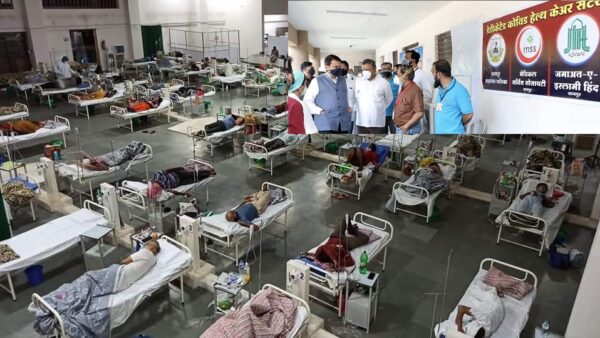Last Updated on May 12, 2021 9:23 pm by INDIAN AWAAZ
The report reprimands global leaders and calls for major policy changes to bring the pandemic to an end and ensure it cannot happen again.

WEB DESK
The disastrous impact of the COVID-19 pandemic could have been avoided had world leaders acted promptly, an independent global panel has found.
A combination of dithering and poor coordination provided a “toxic cocktail” that hastened the spread of the virus that has claimed more than 3.3 million lives.
The high-level panel’s report, commissioned by the World Health Organization (WHO) has said that the COVID-19 pandemic was avoidable, that need not have cost millions of lives if world leaders had reacted in a more proactive manner.
The report reprimands global leaders and calls for major policy changes to bring the pandemic to an end and ensure it cannot happen again. The panel was chaired by Helen Clark, former prime minister of New Zealand and Ellen Johnson Sirleaf, former president of Liberia.
The report found ‘weak links at every point in the chain’, according to The Guardian, and said the preparation was inconsistent and underfunded. It also remarked that the alert system was too slow and weak and WHO was hugely underpowered.
“Global political leadership was absent,” the report said, quoted by The Guardian. The panel also believed that the emergency which was declared on January 30 2020, should have been done by 22 January instead, as every day counts.
The report was commissioned by the WHO director-general at the instigation of member states, who called at the World Health Assembly in May last year for an impartial review of what happened and what could be learned from the pandemic.
February- Lost Month of Opportunity
According to the report, the month of February 2020 was the time when nations could have geared up to avert the pandemic or at least its severity, but instead, so many countries chose to wait and see. Hence a month of lost opportunities.
According to Sirleaf urgent action should have been taken and that many reviews of previous health crises were available with sensible recommendation, as guidance. However they ‘sat gathering dust in UN basements and on government shelves’. The report showed that most countries were simply not prepared for a pandemic, she said.
She also remarked that while the Chinese promptly identified the new virus and gave warnings in late December 2019, none of it was taken seriously.
The report says the Chinese detected and identified the new virus promptly when it emerged at the end of 2019 and gave warnings that should have been heeded.
An alert was sent out in Wuhan about a potentially new virus, which was “picked up quickly by neighbouring areas, countries, the media – on an online disease reporting site – and by the WHO,” she said, quoted by The Guardian.
“This shows the benefit and speed of open-source reporting, but then the systems that were meant to validate and respond to this alert were too slow. The alert system does not operate with sufficient speed when faced with a fast-moving respiratory pathogen.”
The report also drew attention to the fact that the WHO was hindered and not helped by international health regulations and procedures.
The regulations that govern when the WHO can declare a public health emergency of international concern were adopted in 2007. They bind WHO to confidentiality and verification, preventing rapid action, and prohibit countries from unnecessarily closing their borders against trade.
Recommendations
The panel calls for a faster-moving, better resourced WHO. They also wish for a commitment from leaders of affluent countries to supply vaccines to the rest of the world.
High-income countries with enough vaccines ordered for their own needs must commit to providing at least 1 billion doses by September 1 to Covax, the UN-backed initiative to get vaccines to 92 low and middle-income countries, and more than 2 billion doses by mid-2022.
The report recommends the creation of a “global health threats council”, to be led by heads of state, to keep attention on the threats of pandemics between emergencies and ensure collective action.
